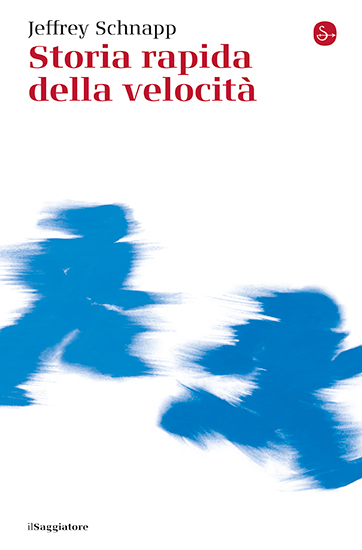
Research Interests: experimental humanities; media history and theory; the past, present, and future of archives, museums, and libraries; Dante, Petrarch, Boccaccio; Futurism and the avant-gardes; 20th-century architecture, product, and industrial design; the fascist decades in Europe; radical pedagogies, early 20th century to the 1960s to the present; experimental museology; generative AI and the future of creative and critical practices.
Originally trained as a medievalist, his recent publications concern the modern and contemporary eras with a focus on technology, media, architecture, design, mobility, and the history of the book. They include The Electric Information Age Book (Princeton Architectural Press 2012); the collection of essays Modernitalia (Peter Lang 2012); The Library Beyond the Book (Harvard University Press 2014); and Blueprint for Counter Education — Expanded Reprint, a critical edition of Maurice Stein and Larry Miller’s 1970 work of radical pedagogy, and FuturPiaggio. Six Italian Lessons on Mobility and Modern Life (Rizzoli International 2017). Moto Guzzi 100 Years, a volume celebrating the centenary of the marque from Mandello del Lario, appeared in both English and Italian in 2021 with Rizzoli International. The director and founder of metaLAB (at) Harvard, he serves as editor of the metaLABprojects series with MIT Press. His English critical edition/translations of Bruno Munari’s Fantasy – Invention, Creativity, and Imagination in Visual Communication and Design and Visual Communication were published by Inventory Books in Los Angeles in 2024 and 2025. His most recent book is Storia rapida della velocità, published in Italian by Il Saggiatore in May 2025 was the recipient of the 2025 Premio di saggistica “Città delle rose” (in the non-Italian author category): an honor whose prior recipients include Alberto Manguel, Marc Augé, Michail Chodorkovskji, Edgar Morin, and Tzvetan Todorov.
Schnapp’s work in the domain of curatorial practice includes collaborations with the Triennale di Milano, the Cantor Center for the Visual Arts, the Wolfsonian-FIU, the Museo Madre e Fondazione Donnaregina (Naples), and the Canadian Center for Architecture. His Trento Tunnels project—a 6000 sq. meter pair of highway tunnels in Northern Italy repurposed as a history museum—was present in the Italian pavilion of the 2010 Venice Biennale of Architecture and featured at the MAXXI in Rome in RE-CYCLE (fall-winter 2011). He also served as lead curator for BZ ’18-’45, a prize-winning documentation center built under Marcello Piacentini’s Monument to Victory in Bolzano/Bozen open to the public since July 2014. Among his curatorial projects are Universo futurista / Futurist Universe, which marked the inauguration of the Fondazione Cirulli in Bologna, as well as development of the successor platform, L’archivio animato – Lavori in corso, inaugurated on October 23, 2019 as a “perpetual exhibition machine.” Inaugurated on February 6, 2025 was the second of three exhibition events in the Trento Tunnels, entitled “Performance,” dedicated to the Milano-Cortina 2024 Winter Olympics, with Schnapp serving as art director and collaborator (with Kim Albrecht, Giacomo Nanni, and Dario Rodighiero) on a central component of the exhibition itinerary: a data storytelling immersive environment in which visitors experience and interact with a century’s worth of Winter Olympic data (1924-2024).
Education: B.A. Vassar College (Hispanic Studies); Ph.D. Stanford University (Comparative Literature).






Founded as a graduate program in 1904 and joining with the undergraduate Literature Concentration in 2007, Harvard’s Department of Comparative Literature operates at the crossroads of multilingualism, literary study, and media history.
© 2023 President and Fellows of Harvard College
Sign up to receive news and information about upcoming events, exhibitions, and more